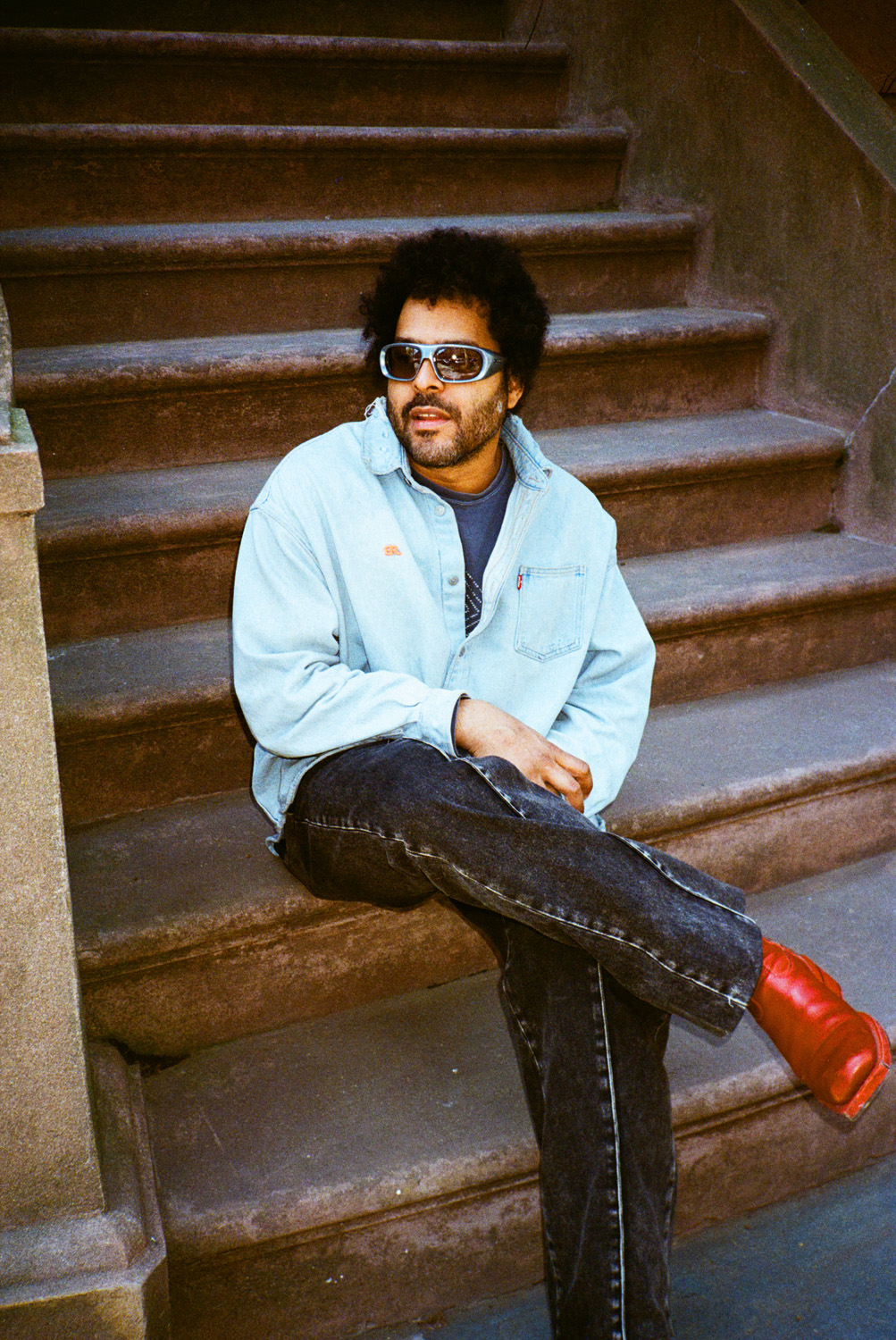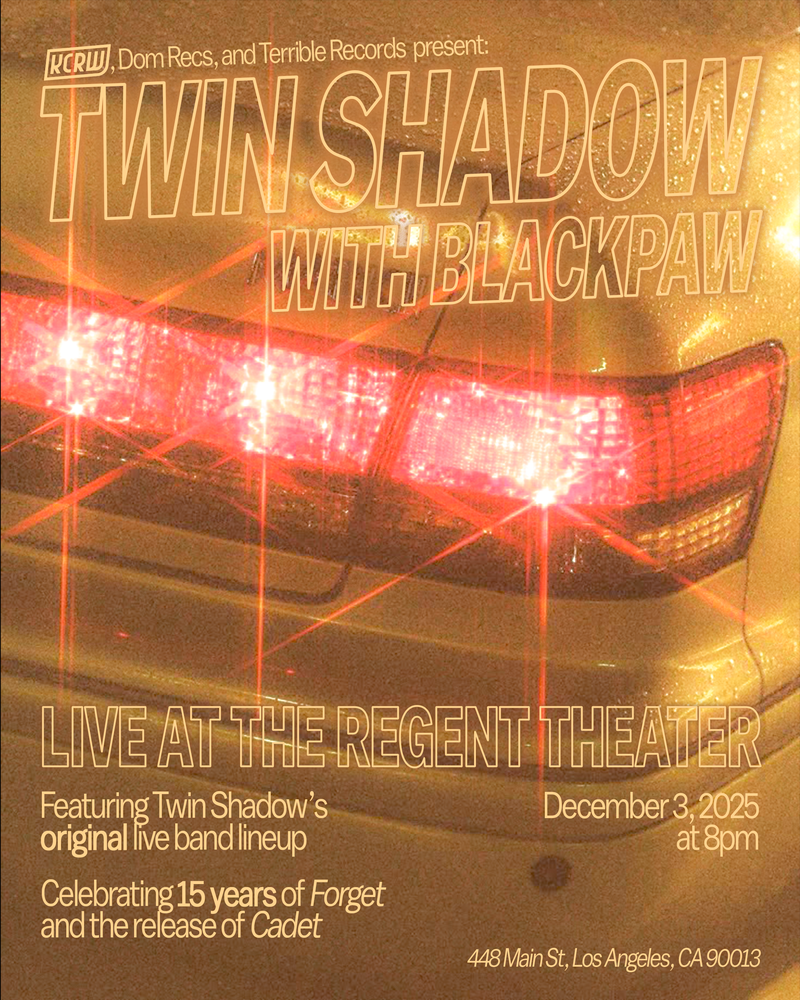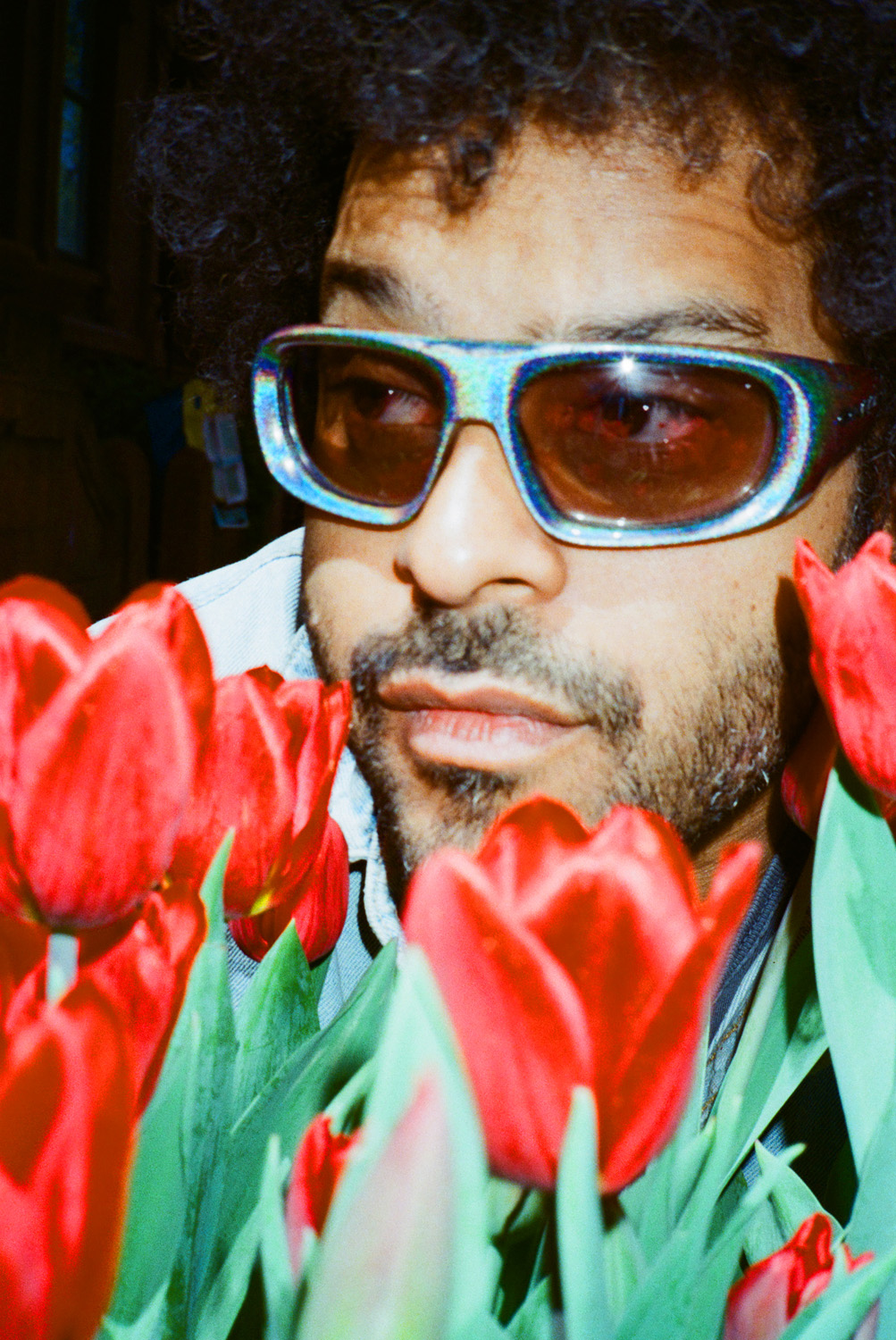
Photos / Jason Rodgers
Words / Jesse Roth
Twin Shadow has been around for a long time — and for good reason. George Lewis Jr. has the creativity, vision, and self-assurance of an artist who’s never felt confined to one era or one sound. I first heard his song “Saturdays” off the 2018 album Caer, a collaboration with my all-time favorite band, HAIM. Since then, I’ve loosely followed Twin Shadow’s career, always curious to see where he’d go next.
That curiosity turned into full-on obsession when I previewed Georgie, a stripped-down and emotionally raw record that pulled me back in. Inspired in part by his father, the album carried new weight in its minimalism — the lyrics and melodies left exposed, vulnerable, and haunting. Seeing it live at Elsewhere, staged in the round, amplified its intimacy. Though the setup was one I’d only encountered in theatre, George wasn’t theatrical, but sincere, sipping beer between songs and rotating throughout the set so every part of the crowd felt included.
By the time his 7th studio album, Cadet came into view, I was all in again. Listening for the first time, the songs felt both familiar and brand new — transformed with infectious beats and an undeniable sense of freedom that makes them impossible to resist.
Tell me about the inception of this album. Did you already know that you wanted to reinterpret the songs on Georgie, or did that idea come after its release?
I do everything in my life a little bit like a joke. If an idea sounds silly but keeps coming up, I usually chase it. With Georgie, I had this rule: no drums. People thought it was more meaningful than it really was—I just like rules because they force you to make things work. The whole time I was making Georgie, I’d say to friends, “I’ll just do a pop version of this later.” It became a running joke until I actually did it. The process was spontaneous—I finished the album in three weeks, working obsessively. The more I went, the more fun it became. I stopped thinking about honoring Georgie and treated it as new material. I see Cadet as my “producer record,” almost like I was handed a batch of demos to flesh out.
I felt in Georgie that because of the minimalist production, the emotions and lyrics really took center stage. Then in listening to Cadet, I was able to pay attention to the production more but also dance to it.
Georgie is a cerebral experience. Cadet is the body experience.
This is not an ordinary remix album. You’ve changed the titles and even played around with the tracklist order. What was the idea behind that?
There are a lot of tropes in the music business about how things should be categorized. When you call something a “remix album,” you’re already lowering its value. That’s not how I work. I put everything into Cadet as I would any record. “Remix” has become almost meaningless—songs can be sped up, slowed down, pulled apart, and they still work. Labels exist to box artists in for marketing, and I just want to live in a world where I can do whatever I want with my art. That was the attitude behind Cadet.
I loved that the new song titles came from the lyrics; to me it emphasized a different message of the song. Was that intentional?
It was instinctual. Not overthought. Just asking, “What fits the feeling of the song?” I’ve always liked pulling titles from lyrics.
Where did the title of the album, Cadet, come from?
Cadet was almost the name of Twin Shadow from the beginning. It reflected how I felt when I started—like I had so much to learn. The word stayed with me. To be creative, you have to start with nothing, knowing nothing. That’s what this album was: jumping in without a plan and seeing where it led.
Georgie was largely inspired by your father. Did working on Cadet change how you emotionally connected to the songs?
I didn’t think about themes or emotions this time—I just treated the songs as raw material to play with. Starting from melody is enough, and the sonics can redirect meaning anyway. That’s what excited me about this project: making something fast, fun, and instinct-driven.
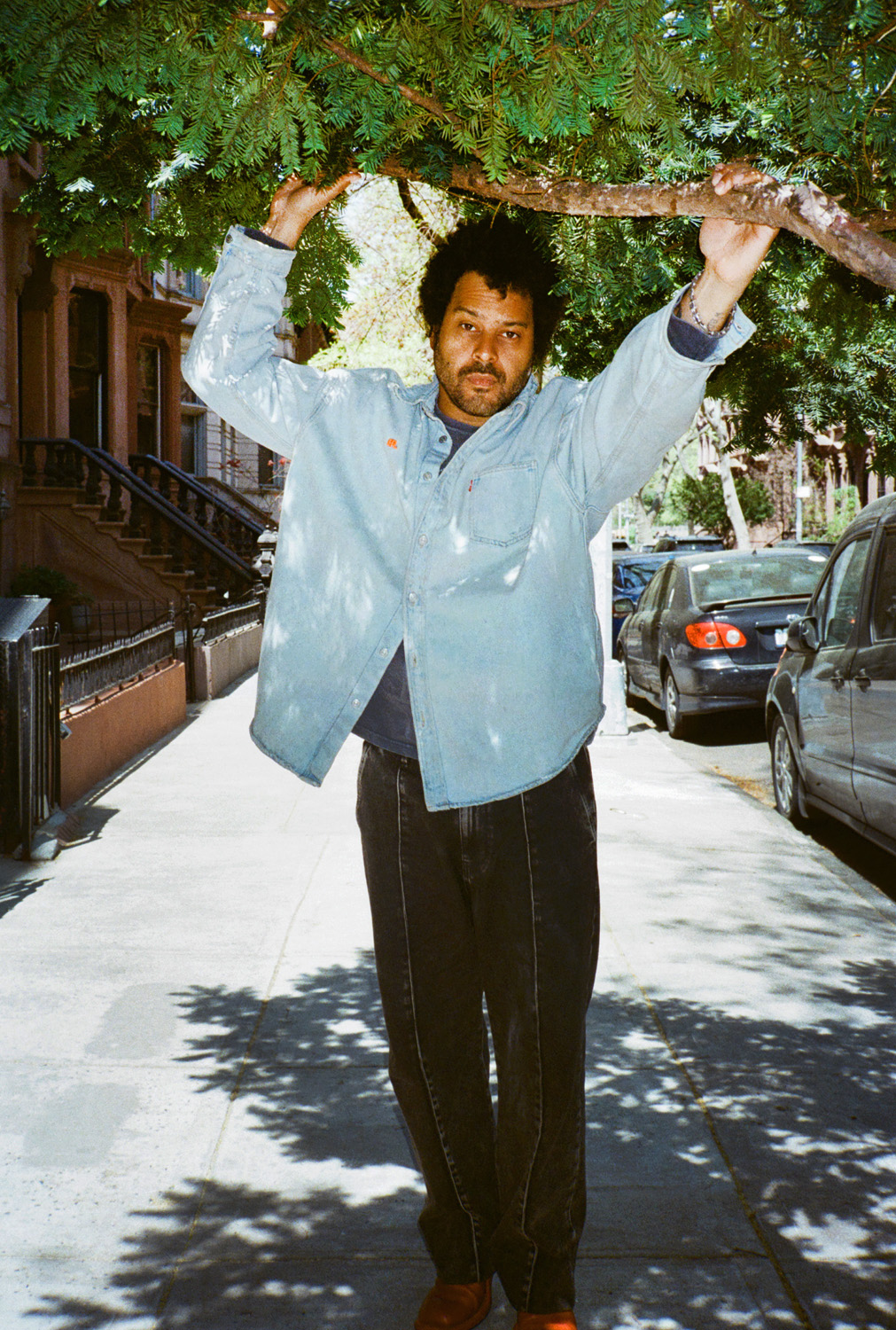
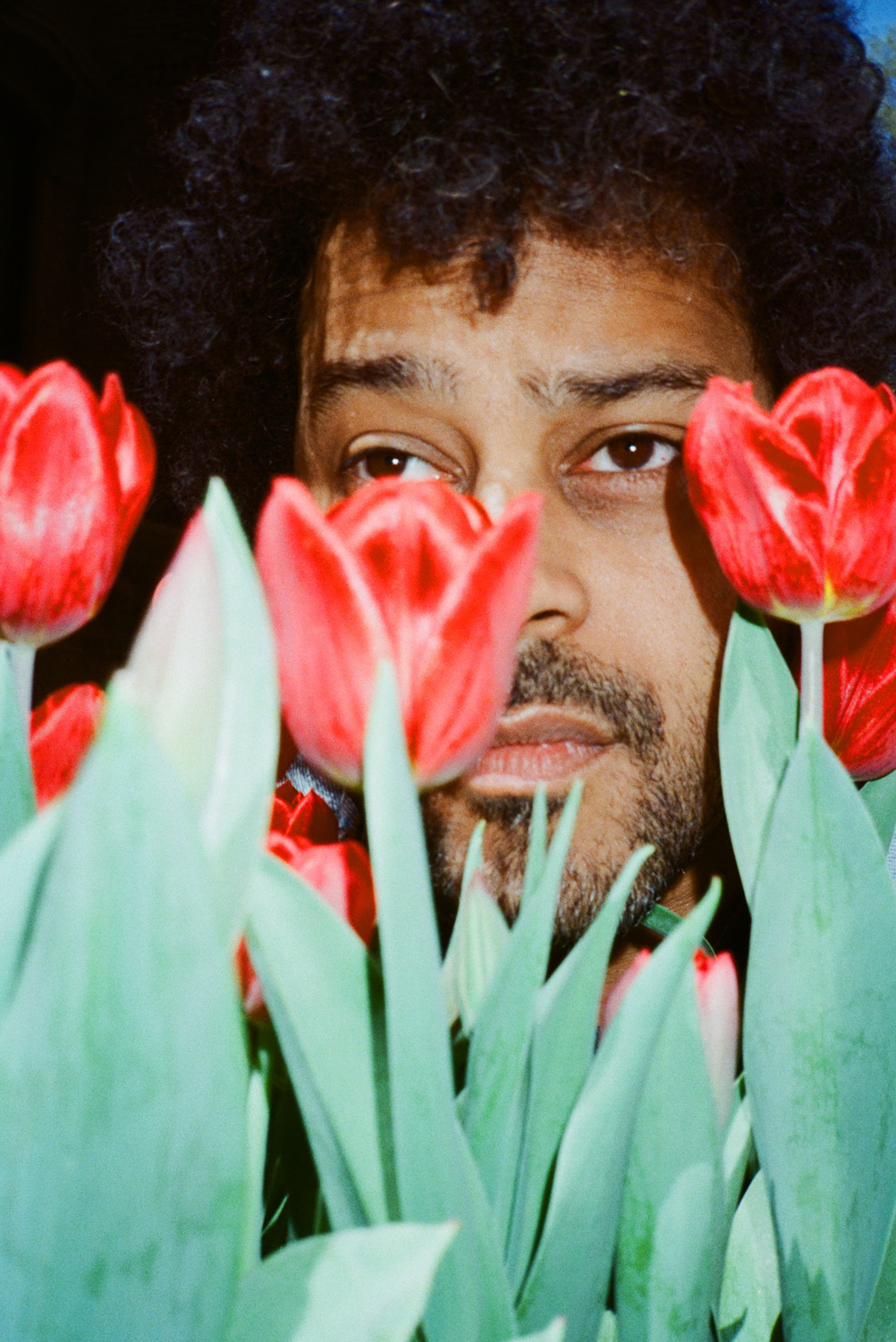
Speaking of fast and fun, what was the easiest track to make?
“Dominoes.” I had something I liked, but it was missing an element. I brought it to my friend Blackpaw, he added beats, and suddenly it clicked. Finished quickly, it felt effortless.
Did you give yourself any rules like you’ve done with past albums?
No strict rules—just impulses. I did set a few sonic boundaries so it wouldn’t feel scattered. The record moves between two lanes: ethereal synths and rock-adjacent sounds. I love exploring, but I didn’t want too many genres fighting on one album.
Your lyrics read like poetry to me. What is your writing process? Are you writing in the studio as you’re producing the music?
I used to keep endless notes, but now lyrics come as I’m making the music. They feed each other. For me, melody and words aren’t separate—they arrive together. I believe there’s always an inevitable lyric that fits a piece of music. Writing that way feels seamless and more inspiring.
Do you think your creative process has evolved from your first album to now?
It’s about maturity. When you’re young, you treat every word like it’s sacred, like you can’t lose anything. As you age, you realize your mind has a pattern—there’s one big idea you’ll spend your whole life expressing in different ways. I used to obsess over capturing everything. Now I trust that I am the idea, and it will find its way out. That shift removed my anxiety about art-making. I worry about plenty in life, but not about creating.
So you do see a through line in your work even though you approach each album differently.
I’m always communicating my experience. The only original thing any of us has is ourselves—our perspective. Everything else is recycled. If you get to the core of who you are, that’s when you become an individual. Otherwise, we’re just part of a bigger group, which is also beautiful. Twin Shadow has always come from that place. Sometimes I’ve loved my music, sometimes I’ve hated it, but it’s all part of expressing that perspective.
You talked about us all being copycats. Your music has been described as having an ‘80s element to it, but you’re obviously not trying to channel any one artist.
I’m inspired by countless artists, and yes, I’ve copied them. What used to bother me was that people’s comparisons didn’t capture the mix of influences I was drawing from. I don’t think any Twin Shadow record has ever sounded exactly like another artist. People say “’80s” because I use chorus guitars and synths. That’s fine—those are signatures. One of my favorite songs is “Never Met a Girl Like You Before” by Edwyn Collins. He said he wanted to sing it like Iggy Pop, and when you hear it, you think, “Yeah, that’s Iggy.” But it doesn’t matter—it’s still brilliant.
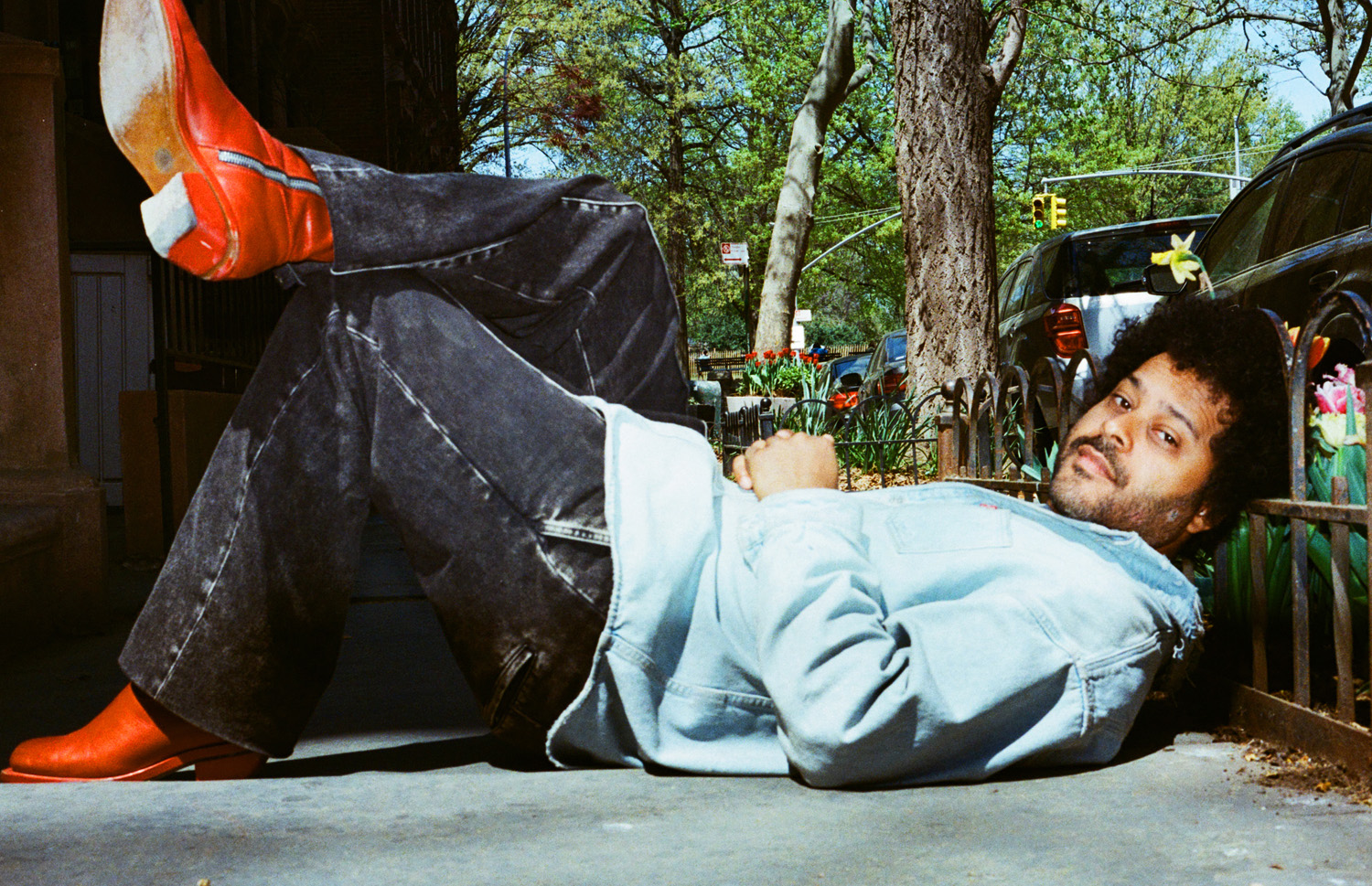

How are you feeling about Cadet being released? Are you wondering how it will be received, or do you just not care?
Of course I want it to be received well, for people to enjoy it, and to hear it as a full new album. I’d love to play these songs live with a bigger band alongside older material. Next year Forget turns 15, which is exciting. But more than anything, I’m just having fun with it—and that’s the most important part.
How do you view success now as opposed to when you were just starting out?
Success is constantly shifting. Everyone’s version changes constantly. These days I’m humbled by the state of the world, so I don’t obsess about my own definition of success. I just keep making things.
Talking with Twin Shadow felt like peeling back the curtain on an artist who, after 15 years, has learned to trust instinct above all else. His reflections on creativity and letting go were as layered and honest as the music itself. As a fellow Aries, I felt an instant kinship in that restless drive. That same energy defines Cadet, alive with freedom, boldness, and infectious beats — a reminder that Twin Shadow is still evolving, and still impossible to ignore.
